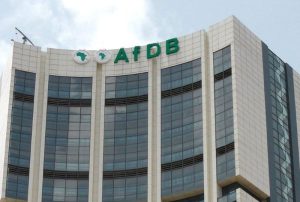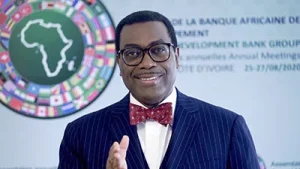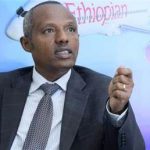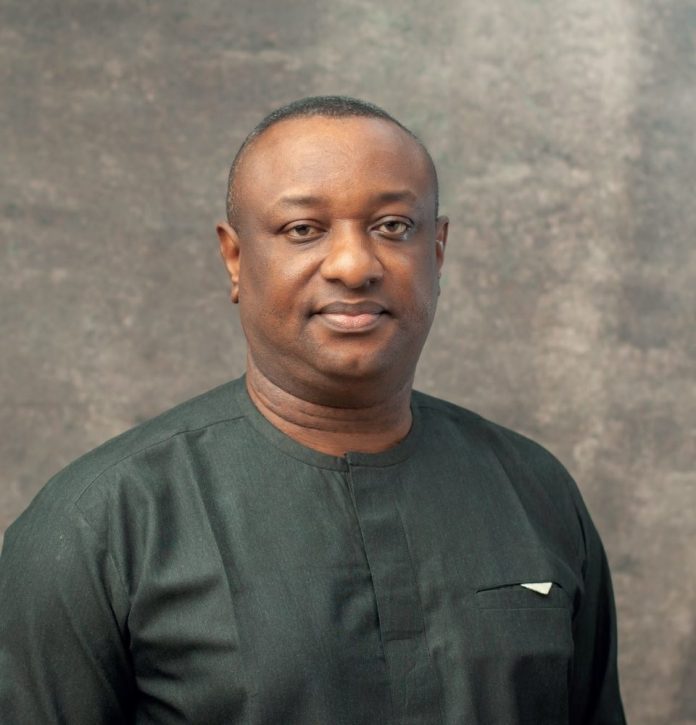
Lack of access to reliable energy in Sub-Sahara Africa has impinged efforts to eradicate poverty in the sub-region. This has prompted the African Development Bank to introduce Mission 300, an initiative aimed at providing electricity access to 300 million people in Sub-Sahara Africa by 2030. Chinedu Eze writes that this transformative effort will lead to economic empowerment in the sub-region.
One of the indices of a society that is reeling in poverty is lack of access to reliable energy. According to United States Office for Project Services (UNOPS), access to energy is vital for socio-economic development, as every sector requires energy to grow and thrive. And most basic services, from treating wastewater to lighting homes, require energy.
UNOPS stated that despite this, around 110 million people living in urban areas in Africa lack access to grid electricity, emphasizing that people living in formal settlements in urban areas that have electricity connections frequently experience outages and voltage fluctuations with costly and unreliable service.
“The picture is even more complicated for people living in informal settlements in urban areas,” stated UNOPS.
This underscores the need to improve the access to reliable energy, hence AfDB’s ambitious endeavour to emancipate the people of Sub-Saharan Africa from poverty by providing them reliable and sufficient energy.
According to AfDB, Mission 300 represents an unprecedented collaboration between the African Development Bank and the World Bank Group, along with other development partners, as this initiative comes at a critical time, as nearly 600 million Africans, representing 83 percent of the world’s energy-deprived population, lack access to electricity.
At the summit held recently in Dar Es Salaam, Tanzania, AfDB agreed that 12 countries will present their energy compacts and these are Chad, Côte d’Ivoire, the Democratic Republic of the Congo, Liberia, Madagascar, Malawi, Mauritania, Niger, Nigeria, Senegal, Tanzania, and Zambia6. These efforts will support the implementation of the Continental Master Plan and the African Single Electricity Market7.
Critical need
Without access to electricity, Africa cannot achieve its developmental aspirations or secure its rightful place in the global economy as energy access is the cornerstone of economic transformation, opening doors to education, healthcare, and income generation.
Without access to reliable power, economic opportunities remain constrained, with households and small businesses bearing the brunt of the challenge. The reliance on alternative energy solutions, such as diesel power generating plants place significant strain on household budgets and stifle the growth of small enterprises due to high operational costs. Also, in rural areas, the lack of extensive power infrastructure is also forcing families to depend on kerosene lamps, which aside from being expensive expose them to serious health risks as a result of indoor air pollution.
UNOPS had noted that in Sub-Saharan Africa, for example, around 55 per cent of all people living in urban areas are in slums – many of whom either don’t have electricity connections or have illegal (and potentially dangerous) connections. This is also one of the fastest urbanizing regions in the world – and with more urbanization comes even more strain on already fragile energy networks.
So, in response to the continent’s urgent energy crisis, the African Development Bank (AfDB), in partnership with the World Bank and other development partners, recently unveiled the Mission 300 initiative. This initiative aims to provide electricity access to 300 million people in Sub-Saharan Africa by 2030. The collaborators emphasised that Mission 300 is more than just a numerical goal as it symbolises lives transformed, economies rejuvenated, and communities empowered.
Furthermore, the initiative is aimed at accelerating electrification by combining grid expansions with decentralised renewable energy solutions like mini-grids and stand-alone solar home systems. These solutions are especially useful in reaching vulnerable and remote regions where traditional grid infrastructure is not feasible. Alongside these efforts, there are investments in generation, transmission, regional interconnection, and sector reform that are made to guarantee that the power supply is reliable, affordable, and sustainable. Mission 300’s approach combines traditional grid expansion with innovative off-grid solutions to connect remote communities. The programme also focuses on sustainable financing models, and tackles critical challenges, including currency mismatches in project funding.
They also emphasized that private sector involvement is essential in tackling Africa’s energy challenges, especially given the continent’s rapidly growing population and the urgent need for increased investment. Stakeholders, therefore, emphasise that the success of Mission 300 hinges on the collective efforts of governments, private sector players, and international partners, adding that governments must take the lead by implementing essential reforms to enhance sector efficiency and strengthen utilities. They stressed that transparent, competitive processes for generating new capacity, along with cost-recovery frameworks for utilities, are vital as regulators would need to adapt quickly and innovatively to keep pace with the rapidly evolving technological and business landscape.
Development partners
Governments and development partners, the stakeholders noted, should advocate for regional electricity trade to move away from the single-buyer model and facilitate the sustainable integration of Variable Renewable Energy (VRE) into fragile grids, thereby supporting energy transition in African nations. With the private sector already playing a crucial role in expanding renewable energy access, particularly by implementing decentralised energy solutions, this approach is highly commendable, because of its effectiveness in areas where traditional utility-scale projects struggle due to infrastructure limitations. Meanwhile, multilateral development banks and philanthropic organisations must increase their efforts to unlock private capital for the energy sector. This, experts note, can be achieved through targeted financing instruments, risk mitigation tools, technical support, and policy advocacy.
It was also noted that regulatory authorities in many African countries face political interference, which undermines their decision-making processes and hinders their ability to implement policies that are crucial for the long-term development of the energy sector and urged that regulators should be allowed.
Economic growth and reliable energy
In emphasising the transformative role of electricity in fostering development, the President of AfDB, Akinwumi Adesina said: “No economy can grow, industrialise or be competitive in the dark. Access to electricity is not just about power, it’s about creating jobs, improving healthcare, and fostering education. Mission 300 represents a bold step towards lighting up and powering Africa.”
On his part, the Vice President for Power, Energy, Climate, and Green Growth at the AfDB Group, Kevin Kariuki, stated that Mission 300 goes beyond being an energy initiative to even “a moral obligation. It embodies a shared commitment to lifting millions out of poverty, promoting inclusive economic growth, and building a resilient, green future. He further emphasised that the success of the initiative depends on strong support from all stakeholders, including governments, development partners, the private sector, and civil society.
Kariuki, therefore called for a unified focus on prioritising reforms, mobilising investments, and leveraging partnerships to transform Africa’s energy landscape.
Energy access is the cornerstone of economic transformation, unlocking opportunities for education, healthcare, gender equality, and income generation. It is a prerequisite for creating a green and resilient future, one where poverty is a relic of the past.The road ahead may be challenging, but it is also filled with opportunity. With determination, innovation, and collaboration, we can achieve universal energy access in Africa. This is our moment to make history,” he said.
Dedication to Renewable Energy
The Special Adviser to President Bola Ahmed Tinubu on Media and Public Communication, Sunday Dare, highlighted Nigeria’s advancements in the energy sector during the Mission 300 Africa Energy Summit in Dar-es-Salaam, Tanzania. He noted that Tinubu has accelerated key initiatives to enhance energy access nationwide. He emphasised Nigeria’s dedication to renewable energy, highlighting ongoing efforts in solar and clean energy under President Tinubu’s administration. Dare noted that the President is set to unveil a compact initiative aimed at advancing this agenda.
Dare remarked that existing partnerships are yielding results, citing the AfDB’s commitment of N75 billion to Nigeria’s Rural Electrification Agency (REA) to enhance renewable energy development. He expressed confidence in Nigeria’s capacity to meet its energy commitments, emphasising the key pillars of President Tinubu’s energy policy: sustainability, affordability, and accessibility, which align with the broader objectives of the summit.
“Africa coming together to pool its resources, whether it’s hydro, solar, wind, or the emerging green hydrogen is commendable. With our enormous gas deposits and tropical sunlight, we have what it takes to power the continent, Tinubu is a president who can make a pitch for his country, win deals, and secure solid commitments for foreign direct investments. Look at what happened in Brazil and what’s happening in agriculture. He’s bringing that same determination to energy,” he said.
Daniel Schroth, the Director for Renewable Energy and Energy Efficiency at AfDB, highlighted the urgent need for implementation to tackle Africa’s energy crisis.
“It’s a tight journey because 2030 is only five years away and we have to deliver, not expected connections, but actual connections to 300 million by 2030,” he said.
Also, AfDB’s Director of Energy financial solutions, policy, and regulation, Wale Shonibare, emphasised that investments in generation, transmission, regional interconnection, and sector reform must complement efforts to ensure that the power supply is reliable, affordable, and sustainable.
“The recently launched Technical Facility Accelerator Fund is a promising step in this direction, providing technical assistance to governments and helping streamline processes to achieve Mission 300 targets. By working together, we can transform the energy landscape of Africa and, in doing so, create a brighter, more prosperous future for millions,” he said. The World Bank Group President, Ajay Bangaemphasised that the partnerships forged and commitments made will shape the continent’s journey toward achieving universal energy access, transforming millions of lives, and driving sustainable development.
No economy can grow, industrialise or be competitive in the dark. Access to electricity is not just about power, it’s about creating jobs, improving healthcare, and fostering education. Mission 300 represents a bold step towards lighting up and powering Africa.
CULLED FROM THISDAY







